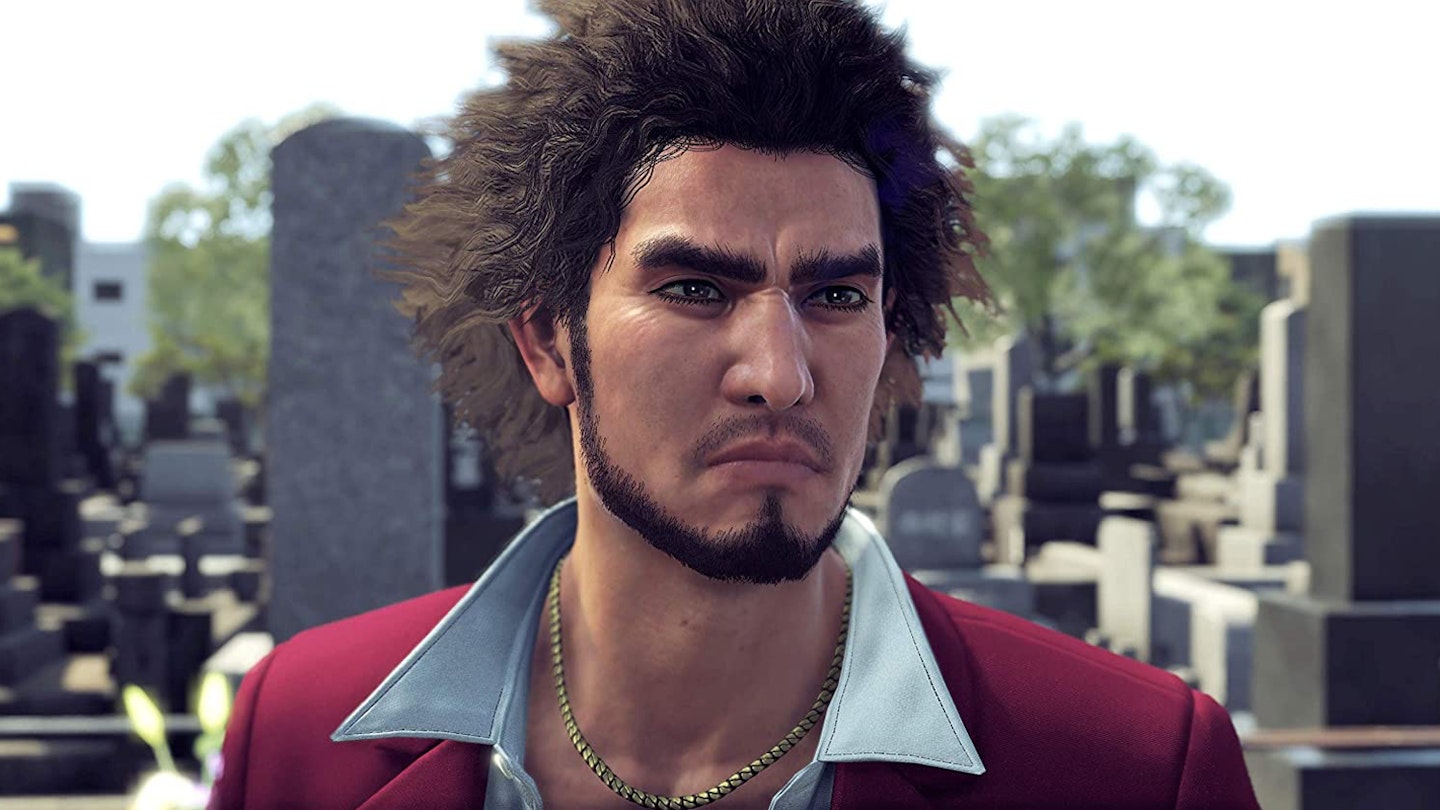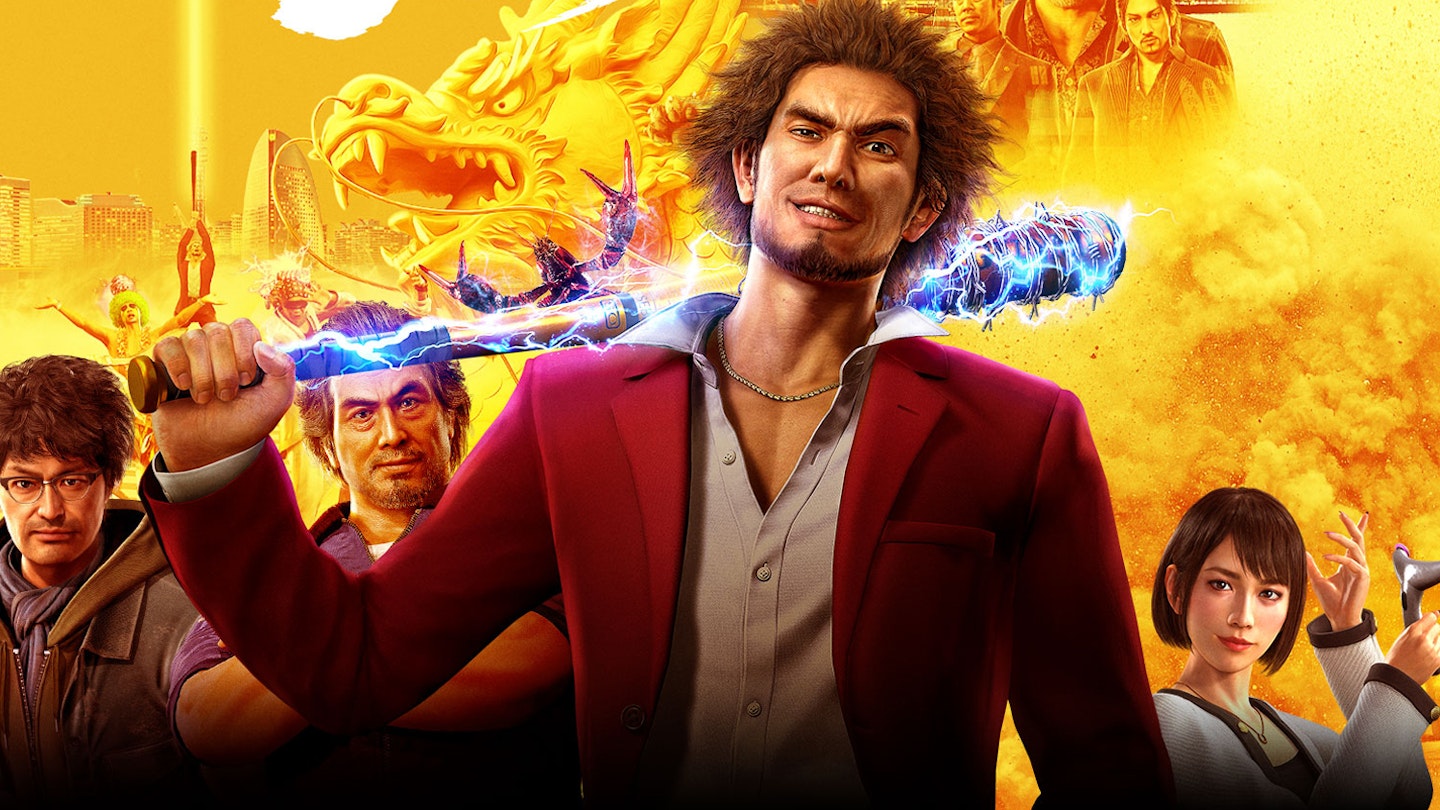Platforms: Xbox Series X / S, Xbox One, PC
To anyone who has followed the criminally good Yakuza series, you might think publisher Sega is hedging its bets in the west with Like A Dragon – that subtitle is front and centre on the cover, the Yakuza name is minimised, and with new protagonist Ichiban Kasuga stepping in for series stalwart Kazuma Kiryu, it feels as if this is being positioned as a spin-off.
Yet in Japan, this is Ryu ga Gotoku 7, definitively the next core entry in the long-running series centred on the Japanese criminal underworld. You might forgive Sega some potential skittishness over branding though, as this is the biggest departure the series has taken. Along with the shift in playable hero – well, anti-hero – to Ichiban, the mechanics of the game are reimagined as a turn-based RPG, despite still being set in modern day Japan.

That juxtaposition of combat mechanics most often found in the realms of fantasy with the mundane realities of urban living is one of Like A Dragon’s best meta-jokes. Wandering around the streets of Kamurochō (a fictionalised take on the real-life Kabukichō in Tokyo) or Yokohama and getting into scraps with drunken salarymen or rival gangsters, taking it in turns to punch each other or unleash special attacks, is a strange delight.
It's also an unexpectedly brilliant approach to turn-based combat, blurring the line between staid your-turn/my-turn blows with the ability to try to block enemy attacks at any time, and attacks that factor in environmental context. If an enemy is stood next to a traffic cone or other bit of street furniture, a regular attack might turn into a more exciting beat down with a nearby bicycle.
The turn-based model fits Ichiban well as a character, too. Despite starting the game as a junior officer in the Arakawa crime family, he's – charitably – a massive dork, obsessed with Dragon Quest and fancying himself a hero. He's too kind-hearted for the life, refunding kids scammed by a rival and letting people off with their shady debts. If it weren't for his devotion to clan patriarch Masumi Arakawa, you get the sense Ichiban would be better off on the other side of the law.
As you start recruiting more characters, that turn-based system becomes increasingly, brilliantly absurd.
It's precisely that optimism and earnestness that makes him a perfect fit for the stranger directions that Like A Dragon takes though, be it go-karting around Yokohama, helping would-be superheroes, or beating up yakuza with an adult diaper fetish. Unlike the stoic Kazuma, Ichigo better fits the sheer weirdness of the world. It's a truly beautiful world too, the best the series has ever looked. On Xbox Series X (version tested), it's possible to forget you're not wandering around a real city. A first person view for exploration and a detailed photo mode are seemingly there mainly to show off how pretty the game is.
The problem is, before you get to the real core of Like A Dragon – those heights of wackiness and the surprisingly emotional gut-punches between them – the game keeps you waiting. It keeps you waiting a very, very, long time. In the first five hours of the game, you'll have direct control of Ichiban for perhaps less than half of that – and if you head straight to each objective trying to move the story along, possibly even less. Like A Dragon struggles immensely with its balance of cutscenes versus active game time, making the opening chapters of the game a real slog to get through.
Following Ichiban's inevitable betrayal by his yakuza family though – one that comes after he takes the fall for a crime he didn't commit and serves 18 years in prison – things pick up. Along with a shift from Kamurochō to Yokohama, where the bulk of the game takes place and Ichiban begins his search for some form of explanation for his treatment, comes improved pacing and more freedom. It's here where the game shines, allowing you to explore the various distractions the Yakuza series has become known for – and yes, karaoke makes a return.
As you start recruiting more characters, that turn-based system becomes increasingly, brilliantly absurd. Homeless man Nanba, who patches up Ichiban and is effectively the group's mage, attacks with swarms of pigeons, while tag team attacks deliver ridiculously over-the-top damage. Throw in some hilarious summons – a horde of irate crustaceans led by boss crayfish Nancy-chan, for instance – and even the ability to breakdance in battle, and even regular encounters are genuinely fun.
Those pacing problems persist though, and Like A Dragon never quite strikes the right balance between moving its story along and letting you experience the game. It's far more weighted towards "tell" than "show", and the frustratingly long cutscenes or dialogue sections may deter some from seeing Ichiban's quest for answers through to its end.
Buy Yakuza: Like A Dragon on Xbox Series X and Xbox One on Amazon
